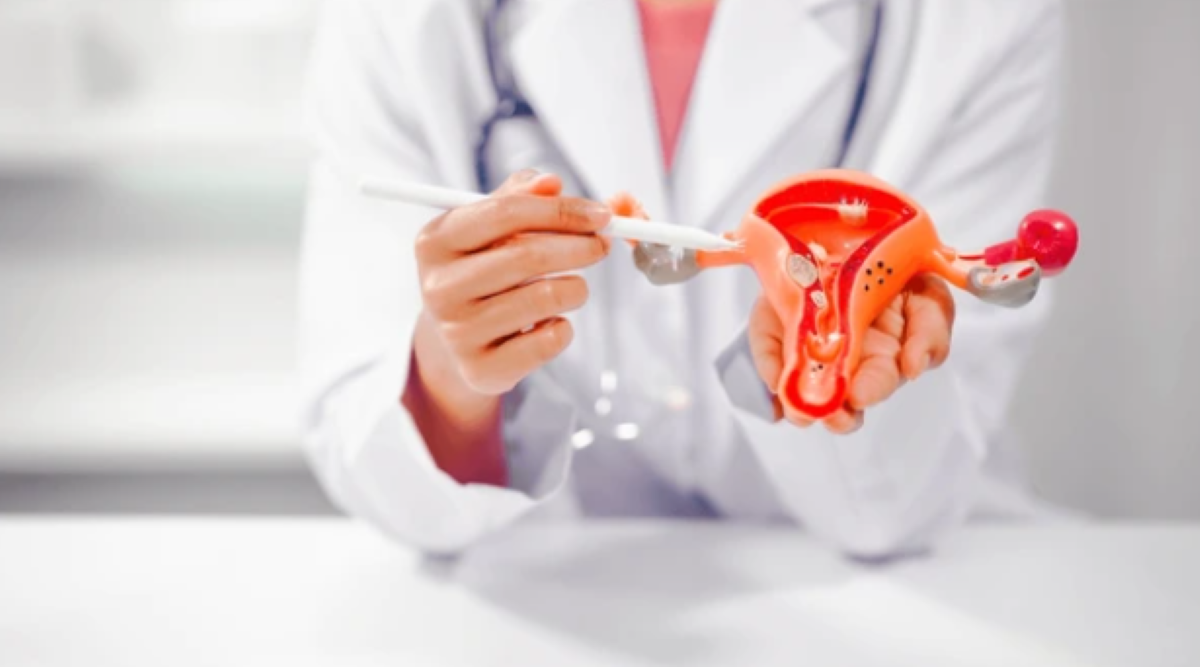
Endometriosis is a health condition where tissue, which behaves like the lining inside the uterus (the organ where a baby grows), starts to grow outside the uterus. This can happen in places like the ovaries, fallopian tubes, and other areas in the pelvis.
When this tissue grows where it shouldn't, it can lead to painful endometriosis symptoms. Many people with endometriosis experience severe pain, especially during their period, but this pain can also happen at other times, making it hard to go about their daily activities.
This can range from mild to very severe. It often gets worse just before and during a woman’s period because of hormonal changes that cause inflammation. Many women experience intense cramps during their periods, which can be much worse than normal cramps. Symptoms of endometriosis include:
Interestingly, some people with endometriosis might not have any symptoms at all. They might not even know they have it until they try to get pregnant and can't.
Healthcare professionals are still uncertain about what exactly causes endometriosis. In this condition, tissue that resembles the lining of the uterus starts to grow in areas where it shouldn't. Researchers are exploring different factors that could be linked to endometriosis, such as retrograde menstruation (when menstrual blood flows backward into the pelvic cavity), problems with the immune system, and hormone imbalances. They hope that understanding these connections will help clarify the causes of this condition.
While the precise cause of endometriosis remains unknown, experts have observed a link between having a family history of this condition and a higher likelihood of developing it. If someone in your family, like your mother, grandmother, or sister, has endometriosis, you might have a higher chance of getting it too. Because of this connection, it's a good idea to discuss your family history with your doctor. They can give you more information about your risk and what to watch for regarding endometriosis.
Some people are more likely to get endometriosis because of certain factors. Here are those factors:
People with endometriosis often experience ongoing pain, which can make it hard to enjoy daily activities or feel good. Many individuals with endometriosis have difficulty getting pregnant, which can be very distressing for those who want to have children. In severe cases, the endometrial tissue can grow on or near the intestines or bladder. This may cause problems like:
Though it's rare, endometriosis can affect the lungs or diaphragm, leading to symptoms like:
Usually, a diagnosis begins when someone experiences symptoms like painful or heavy periods. If this happens, they may visit a healthcare provider, often a gynecologist.
The doctor will ask about the person’s medical history and if anyone in their family has had endometriosis. This can help understand the possible risk.
The doctor will conduct a pelvic exam. This is a physical check to help identify any issues.
The doctor may then order imaging tests such as an ultrasound or MRI. These tests create pictures of the inside of the body, helping to look for signs of endometriosis.
The only way to be completely sure that someone has endometriosis is through a procedure called laparoscopy. In this procedure, the doctor uses a small camera to look inside the pelvis. They can see where the endometriosis tissue is growing.
If the doctor finds suspicious tissue, they might take a tiny sample (called a biopsy) and send it to a lab for testing, which helps to confirm the diagnosis.
During the laparoscopy, the doctor can also remove or destroy the endometriosis tissue they find. This means the laparoscopy helps not just with diagnosis but also with treating the condition. Sometimes, the tissue might be in a difficult place, so a team of doctors, such as pelvic specialists or surgeons for the intestines or urinary system, may work together to safely remove it.
Related: Holistic Nutrition for Gynecological Well-being
Understanding endometriosis is crucial for empowering women to take charge of their reproductive health. By recognizing its symptoms and seeking early endometriosis diagnosis, women can access appropriate treatment and improve their quality of life. Effective management through lifestyle changes, medication, and support is essential in navigating this condition. For those facing complex reproductive health issues, a high-risk delivery hospital in Mumbai at Dr Hiranandani Hospital provides expert care through our High Risk Pregnancy Clinic. We focus on managing pregnancies at risk due to past obstetric outcomes, medical complications, and critical events during pregnancy. Prioritizing your health and seeking specialized care can lead to a more positive journey through endometriosis and beyond. Remember, you are not alone, and support is available every step of the way.